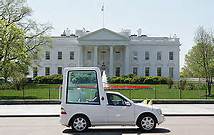You know you have a problem when you say to a car dealer “I need a petrol cap for my car” and he replies “Sounds like a fair trade” ….How things change. But when it comes to buying cars, the overwhelming preferred method to purchase is the Personal Contract Plan (PCP) 75% of the buying public use this system, primarily because at the end of the loan term you swap your car for a brand new one !.
But it means the car will never be owned by its driver if the second PCP is implemented.
PCPs are a flexible form of hire purchase. They differ from traditional hire purchase agreements in that you are not committed to having to buy the car at the end of the term. They also are different to conventional leasing because equity is built up in your car during the HP period. However it can evolve into a never-ending loan.
To start, the PCP buyer has to put down a deposit of up 31% of the value of the new car and then agree a monthly repayment with the dealer. This covers the cost of the car plus interest and depreciation. The car will be given a guaranteed minimum future value for the vehicle at this point. This value will be enough to pay off the outstanding lump sum at the end.
There are three ways to end a PCP:
- Hand back the keys at the end of the term and walk away with no further payments.
- Buy the car from your dealer.
- Start a new PCP.
If you opt for a new PCP, remember you don’t own the vehicle so all you have towards the deposit on your next PCP car is the equity ( outstanding value ) that has built up in your vehicle during the loan term.
You will only know how much that is when the time comes to change your car. It is then you will discover how much additional funds you will need to cover the full deposit on the enxt car. Right now residual values on used cars are strong because the market was depressed for a number of years and there is a demand for used cars, especially from 2009 onwards.
John Lowe the Money Doctor said “ Ideally you should start a savings plan at the start of the loan to either make up any shortfall in the deposit of your next car when the current loan matures or better still to buy the next car outright without the need of any kind of loan”
Shopping around will always pay – don’t take the first offer that comes your way. PCPs are up and running in Ireland for over three years and while not all brands entered the market at the same time, a sufficient number of agreements have now matured to enable dealers take an educated guess at how a PCP is going to pan out.
You should ask dealers for details of how some of their historic PCP plans worked out. The idea is to put down a deposit (usually around 20-22%) that will keep the equity around the same each time for a similarly priced car.
Examples of PCPs in action:
BMW
PCP 1: 2012
Model: 316d ES Saloon bought new
Car Price €39,565
Deposit/Part Exchange €8,500
Monthly repayments € 506
Rolled into a second PCP in 2015
PCP 2: 2015
Model: Upgraded to a new 318d SE Saloon
Car Price €43,620
Part Exchange Equity €5,188
Deposit Added €2,500
Monthly repayments € 537
Renault
PCP 1: 2013
Model: Renault Fluence saloon Dynamique 1.5
Car price: €23,500
Deposit/part exchange: € 7,250
Monthly repayments: € 272.70
Rolled into a second PCP in 2015
Started: 2015
Model: Changed to Megane hatchback Limited 1.5 dCi
Car price: € 24,790
Deposit/part exchange €2,280.99
Monthly repayments: € 283.71

